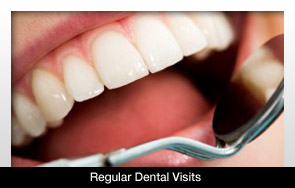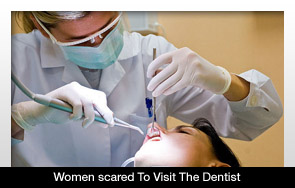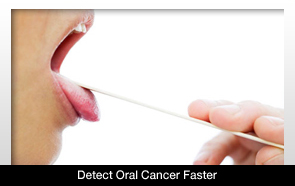Written by Dentistry TodayTuesday, 10 April 2012 10:51

Regular dental visits may be the best way to detect oral cancer, according to the Academy of General Dentistry.
It’s best for people to visit a dentist once every six months based on the recommendation of the Academy of General Dentistry. This issue is being discussed now because April is Oral Cancer Awareness Month.
A dentist may check for lumps or obscure tissue changes in the neck area, head, cheeks and oral cavity. The dentist will also look to see if there are any sores or tissues that are discolored.
More than 30,000 new cases of oral cancer are diagnosed in the United States each year, according to the Centers for Disease Control and Prevention. More than 8,000 of those people die from oral cancer. The five-year survival rate from oral cancer stands at 50 percent.
Like many forms of cancer, the key in treating oral cancer is diagnosing it early enough before it spreads.
Some of the warning signs include bleeding sores in the mouth, sores that don’t heal, lumps in the mouth, a feeling that something is caught in the throat, trouble chewing or swallowing, and many other symptoms. The worries associated with these symptoms can be eased by simply visiting the dentist on a regular basis.

